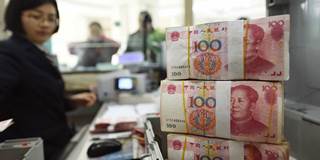In early 2014, after nearly a decade of trying to curb expectations of continued currency appreciation, the People's Bank of China finally succeeded, thanks to forceful market intervention. Unfortunately, the PBOC was pushing on an open door and is now facing an even more difficult challenge: strong depreciation expectations.
BEIJING – The People’s Bank of China (PBOC) faces a dilemma. After nearly a decade of trying to curb expectations of continued currency appreciation (spurred by China’s current- and capital-account surpluses), it finally succeeded in the first quarter of 2014, when its forceful market intervention drove down the renminbi’s exchange rate to discourage carry trades. Now, however, the PBOC is facing an even more difficult challenge, as seemingly irreversible depreciation expectations undermine economic stability at a moment when China can least afford additional uncertainty.

BEIJING – The People’s Bank of China (PBOC) faces a dilemma. After nearly a decade of trying to curb expectations of continued currency appreciation (spurred by China’s current- and capital-account surpluses), it finally succeeded in the first quarter of 2014, when its forceful market intervention drove down the renminbi’s exchange rate to discourage carry trades. Now, however, the PBOC is facing an even more difficult challenge, as seemingly irreversible depreciation expectations undermine economic stability at a moment when China can least afford additional uncertainty.